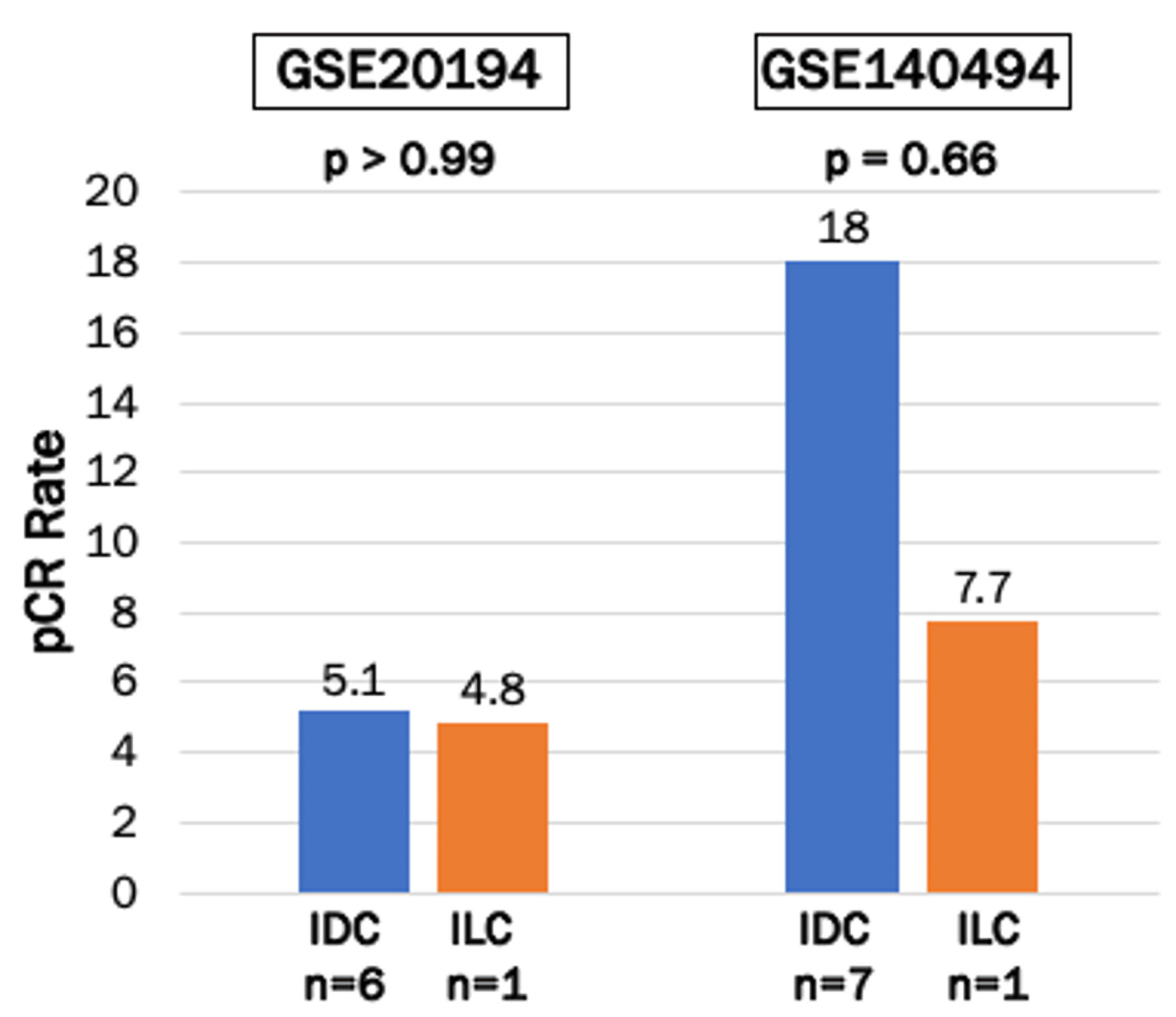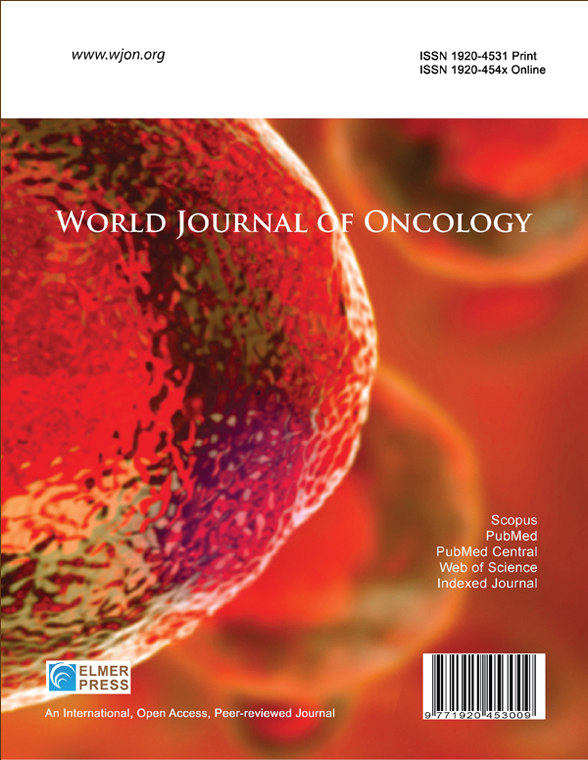Invasive Lobular Carcinoma Has Higher Immune Response Than Invasive Ductal Carcinoma in Estrogen Receptor-Positive/Human Epidermal Growth Factor Receptor 2-Negative Breast Cancers
DOI:
https://doi.org/10.14740/wjon2529Keywords:
Breast cancer, Invasive lobular carcinoma, Invasive ductal carcinoma, Gene expression, Cell proliferation, Immune responseAbstract
Background: Invasive lobular carcinoma (ILC) and invasive ductal carcinoma (IDC) are two major pathological diagnoses of breast cancer, but few studies have described their differences within luminal (estrogen receptor (ER)-positive/human epidermal growth factor receptor 2 (HER2)-negative) subtypes at the molecular level.
Methods: Using The Cancer Genome Atlas (TCGA) (n = 584) and the Molecular Taxonomy of Breast Cancer International Consortium (METABRIC) (n = 1,355) cohorts, we analyzed luminal ILC and IDC, excluding mixed type, in patients with stage I-III breast cancer.
Results: ILC was associated with Nottingham histological grade 2, larger tumor size and more stage III disease than IDC (all P < 0.01) but no difference in lymph node nor distant metastasis in both cohorts. There was no survival difference between ILC and IDC. ILC had less aggressive genomic features compared to IDC, and the cell proliferation score and Ki67 gene expression were significantly lower in ILC in TCGA (P < 0.001); however, these findings were not validated in METABRIC. Hallmark cell proliferation-related gene sets (E2F targets, G2M checkpoint, MYC targets V1, and MTORC1 signaling) were significantly less enriched in ILC in both cohorts (all normalized enrichment score (NES) > 1.4, false discovery rate (FDR) < 0.12). While ILC appeared to have a lower trend of pathological complete response (pCR) in the GSE20194 and GSE1140494 cohorts, ILC was infiltrated with significantly more CD4+ cells and dendritic cells and significantly less T helper type I (Th1) cells, regulatory T cells and M1 and M2 macrophages in both cohorts (all P < 0.05). Stromal cells, adipocytes and lymphatic endothelial cells were highly infiltrated in ILC, and cytolytic activity that represented the global anti-tumor immunity was significantly elevated in ILC in TCGA and subsequently validated in METABRIC.
Conclusions: ILC has higher immune response and immune cell infiltration than IDC in the luminal subtype.

Published
Issue
Section
License
Copyright (c) 2025 The authors

This work is licensed under a Creative Commons Attribution-NonCommercial 4.0 International License.









